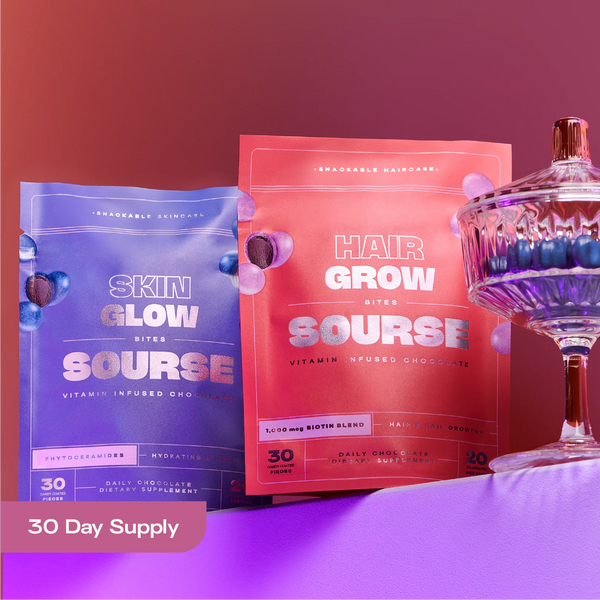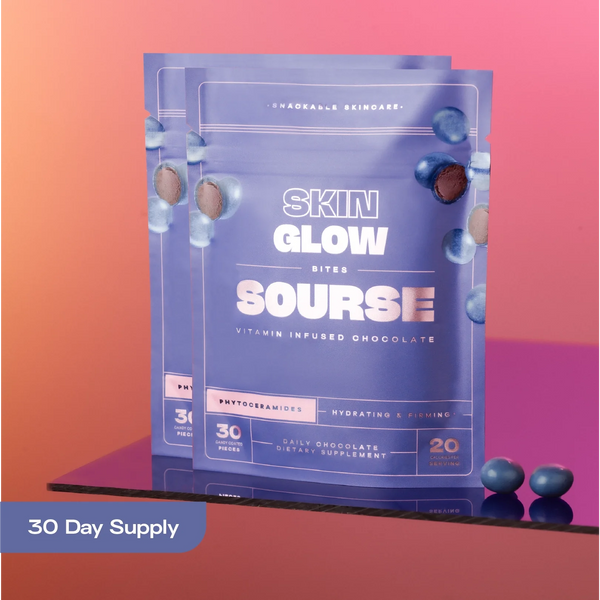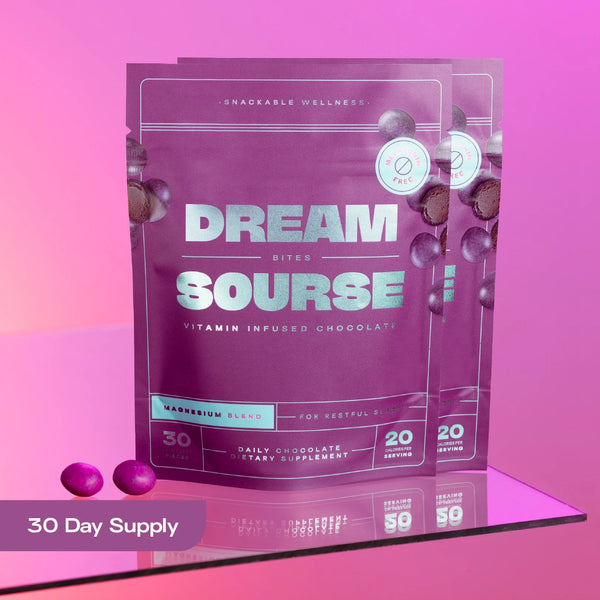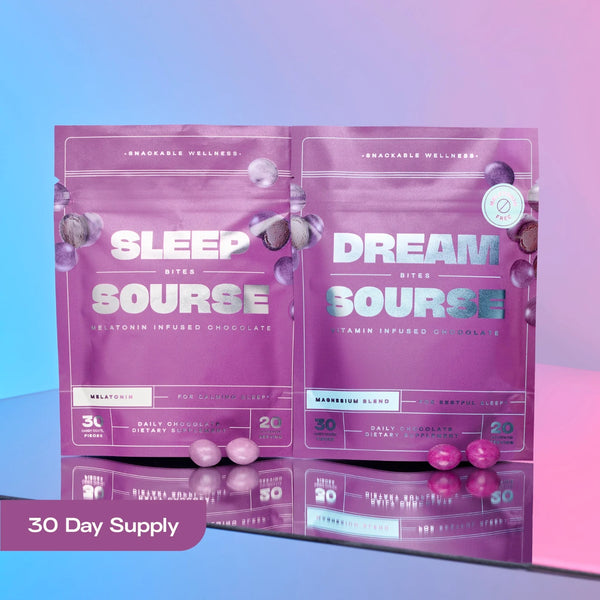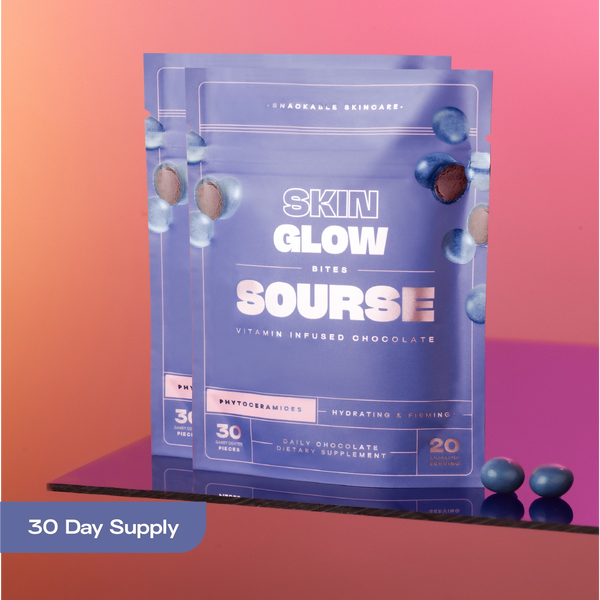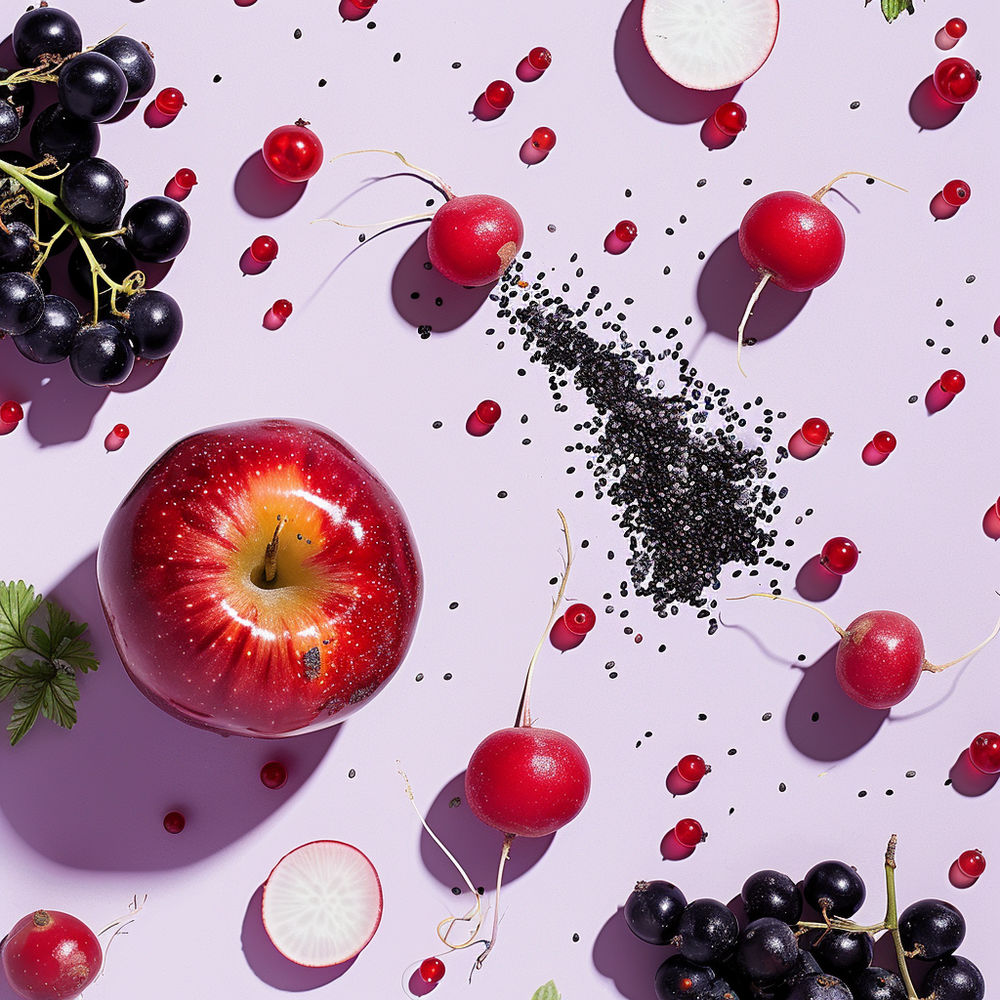
We at Sourse love plant-based diets. In fact, the 2015–2020 Dietary Guidelines for Americans recommends vegetarian diets as one of the top three healthful dietary patterns. But while plant-based lifestyles are becoming more popular, some experts warn that vegetarians and vegans may not be getting all the vitamins and minerals they need from their plant-forward food choices.
If you adhere to a plant-based diet, that's something to be mindful of: nutrient deficiencies could be real.
What nutrients am I missing out on?
When you eat a diet mostly consisting of fruits, vegetables, and whole grains, it’s hard to fathom there could be nutritional gaps. But because you’ve eliminated one or more entire food groups, you may have lost the best—not necessarily the only—source for certain nutrients.
On a plant-based diet, the nutrients and minerals you are most likely to be missing include vitamin B12, iron, omega-3 fatty acids, and vitamin D. The good news is that all of these can be supplemented.
Vitamin B12
Vitamin B12 is the most important potential nutrient deficiency when following a plant-based diet. In its natural form, vitamin B12 is exclusively found in animal products such as meat, dairy, and eggs. So if you don’t eat those anymore, you are setting yourself up for the possibility of a B12 deficiency.
Why does it matter? Vitamin B12 is an essential nutrient for many bodily processes, especially the nervous system. Studies show that B12 supports energy production, which in turn supports optimal brain function.
Without enough B12, you could experience fatigue and neurological changes like brain fog, loss of concentration, and memory loss. Though plant-based, fortified sources of vitamin B12 such as nutritional yeast, spirulina, and plant-based milks are readily available, the bioavailability of fortified B12—the amount absorbed by the body—tends to be lower in plant-based foods, which is why supplementation is often recommended.
How much B12 do I need?
The RDA for B12 for adults is 2.4 mcg, but experts agree you may need more. If you follow a plant-based lifestyle, consider getting your B12 through Hype Bites. Each serving contains 500 mcg of vitamin B12, which ensures you get a consistent amount each day—no more guessing or hoping you ate enough fortified foods to hit your goal.
Iron
Iron is an essential mineral often found deficient in plant-based diets. The human body requires iron for growth, development, and the production of red blood cells. While plant-based sources exist, including lentils, beans, and fortified cereals, this “non-heme” form of iron has a lower bioavailability compared with the “heme” sources of iron found in meat products.
How much iron do I need?
The RDA for iron is 19.3–20.5 mg for adult males and 17.0–18.9 mg for females. Those following a plant-based diet must be diligent about consuming the correct foods to ensure optimal iron levels. For all diets—plant based or otherwise—combine iron-rich foods with a source of vitamin C to increase absorption. Enjoy some fresh squeezed orange juice with that spinach salad!
Omega-3 fatty acids
Omega-3 fatty acids are integral to the body’s cellular structure and play a vital role in other bodily processes including hormone regulation, mood, and metabolic, eye, and brain health. Omega-3s are considered essential: they aren’t produced naturally by the body and must be obtained through food. Although you can get your omega-3 fatty acids in foods such as chia seeds, flaxseed meal, and walnuts, these omega-3s are not as efficiently converted into the “active” form, compared to those found in source like fish oil.
How much omega-3 do I need?
The RDA for alpha-linolenic acid—one form of omega-3—is 1.6 g for men and 1.1 g for women. If you follow a plant-based diet, try supplementing with an algae powder instead of the more traditional fish oil.
Vitamin D
Typically referred to as the sunshine vitamin, as it’s primarily derived through sun exposure on the skin, Vitamin D is essential to immune function, mood, and bone health. It's also been shown to help control inflammation, a leading cause of chronic disease.
How much vitamin D do I need?
The RDA for vitamin D for adults is 15 mcg. However, experts agree that certain populations may need more. In fact, vitamin D deficiencies are quite common, and supplementation is the fastest way to remedy low blood levels. If you live in the northern hemisphere or work indoors, there's a higher likelihood of deficiency. It’s a good idea to ask your doctor to check your levels during your next physical.
Unlike traditional supplements, which can be hard to take consistently, Mood Bites can be incorporated into your normal diet as a supplemental treat. Each serving contains 25 mcg of vitamin D, which makes it easy to increase or maintain optimal levels.
It's no secret that a plant-based diet offers a host of health benefits, but any diet or eating strategy that omits entire food groups means missing primary sources of nutrients and that may lead to deficiencies. Fortified foods can help, but most, if not all, have well-researched, lower absorption rates, regardless of the vitamin or mineral in question. Supplementation can be an easy and more reliable way to maintain optimal levels.
Sources
Appleby, P., Roddam, A., Allen, N., & Key, T. (2007). Comparative fracture risk in vegetarians and nonvegetarians in EPIC-Oxford. European Journal of Clinical Nutrition, 61(12), 1400–1406. Retrieved from https://doi.org/10.1038/sj.ejcn.1602659
Are you getting enough B12? (2017). Harvard Health. Retrieved from https://www.health.harvard.edu/staying-healthy/are-you-getting-enough-b12
Cleveland Clinic. (2020). Do You Really Need to Take Vitamin D Supplements? Health Essentials from Cleveland Clinic. Retrieved from https://health.clevelandclinic.org/do-you-really-need-a-vitamin-d-supplement-2/
Institute of Medicine (US) Standing Committee on the Scientific Evaluation of Dietary Reference Intakes and its Panel on Folate, Other B Vitamins, and Choline. (1998). In National Academies Press (US). Retrieved from https://www.ncbi.nlm.nih.gov/books/NBK114302/
Kennedy, D. O. (2016). B Vitamins and the Brain: Mechanisms, Dose and Efficacy—A Review. Nutrients, 8(2), 68. Retrieved from https://doi.org/10.3390/nu8020068
Melina, V., Craig, W., Levin, S. (2016). Position of the Academy of Nutrition and Dietetics: Vegetarian Diets. Journal of the Academy of Nutrition and Dietetics, 116(12), 1970–1980. Retrieved from https://www.eatrightpro.org/-/media/eatrightpro-files/practice/position-and-practice-papers/position-papers/vegetarian-diet.pdf
Pawlak, R., Parrott, S. J., Raj, S., Cullum-Dugan, D., Lucus, D. (2013). How prevalent is vitamin B(12) deficiency among vegetarians? Nutrition Reviews, 71(2), 110–117. Retrieved from https://pubmed.ncbi.nlm.nih.gov/23356638/
Sheikh, V., Kasapoglu, P., Zamani, A., Basiri, Z., Tahamoli-Roudsari, A., & Alahgholi-Hajibehzad, M. (2018). Vitamin D3 inhibits the proliferation of T helper cells, downregulate CD4+ T cell cytokines and upregulate inhibitory markers. Human Immunology, 79(6), 439–445. Retrieved from
https://doi.org/10.1016/j.humimm.2018.03.001
Tangpricha, V., Khazai, N. B. Vitamin D Deficiency and Related Disorders. (2022). Medscape. Retrieved from https://emedicine.medscape.com/article/128762-overview#a6
US Department of Health and Human Services & US Department of Agriculture. (2015). 2015–2020 Dietary Guidelines for Americans, 8th ed.
Retrieved from https://health.gov/sites/default/files/2019-09/2015-2020_Dietary_Guidelines.pdf
